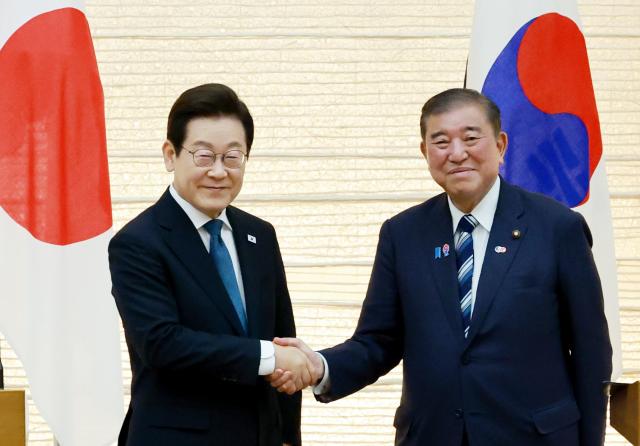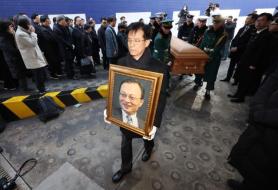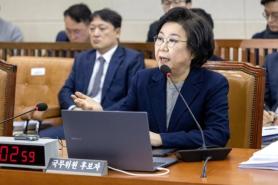
SEOUL, August 24 (AJP) - South Korean President Lee Jae Myung and Japanese Prime Minister Ishiba Shigeru wrapped up their Tokyo summit on August 23 with a joint statement, the first released by the two neighbors in 17 years. The document commits both governments to closer coordination on security and to new cooperation in future industries, with hydrogen and artificial intelligence singled out as priority fields.
The talks at the prime minister's office ran longer than planned, beginning at 4:55 p.m. (0755 GMT) and totaling 113 minutes. A 62-minute small group session was followed by a 51-minute expanded meeting. The leaders agreed to launch a bilateral consultative body to tackle shared challenges that cut across economics and society, including low birth rates, aging populations, metropolitan area concentration, agriculture, and disaster safety management.
Future industry cooperation anchors the economic track of the agreement. During last year's election campaign, Lee pledged to accelerate South Korea's AI capabilities to lift growth and productivity, deploying advanced models across manufacturing and public services to counter demographic headwinds. Linking that agenda to Japan's strengths in next-generation energy and advanced manufacturing, the two sides placed hydrogen and AI at the heart of their forward-looking partnership.
Security coordination featured prominently. Lee and Ishiba reaffirmed their support for the complete denuclearization of the Korean Peninsula and the peaceful resolution of North Korea's nuclear and missile issues through dialogue and diplomacy. They agreed to maintain close policy coordination on North Korea, to work with the international community for thorough enforcement of United Nations Security Council sanctions, and to respond together to the deepening military ties between Russia and North Korea. Both leaders also underscored the importance of strengthening trilateral cooperation with the United States.
The summit produced practical follow-ups. The two governments will resume shuttle diplomacy between leaders, expand youth exchanges through working holiday programs, and cooperate to ensure the successful hosting of the APEC summit in Gyeongju in October and the Korea-Japan-China trilateral summit to be chaired by Japan.
Lee used his opening remarks in the expanded session to call for steady, pragmatic engagement. "Because our two countries are so close, unnecessary conflicts sometimes occur," he said. "Issues that are difficult to approach should be given sufficient time for reflection, but where we can cooperate, cooperation is what politicians in both countries must pursue." Ishiba welcomed Lee's choice of Japan as his first bilateral destination since taking office, calling it "very reassuring," and said that stronger Japan, South Korea, and United States cooperation is "very important."
The joint statement also noted that Ishiba affirmed his government's overall inheritance of prior cabinet positions on historical recognition, including the 1998 Kim Dae-jung and Obuchi declaration, "A New Japan-Republic of Korea Partnership for the Twenty-First Century," which has long been viewed as a foundation for future-oriented cooperation.
History still shadows the relationship. South Korea and Japan are close neighbors, yet disputes rooted in Japan's 1910 to 1945 colonial rule of the Korean Peninsula have triggered periodic diplomatic friction. Contentious issues such as compensation for wartime forced labor, the treatment of "comfort women," and Japan-related seafood import questions were not addressed in detail at the summit. The leaders instead focused on areas where progress is possible while acknowledging that sensitive matters require time and careful handling.
Lee described the meeting as a fresh start for rebuilding trust and routine leader-level engagement. He proposed that when Ishiba visits South Korea for the next round of shuttle diplomacy, the two meet outside Seoul to underscore a broader, people-to-people approach to ties.
Copyright ⓒ Aju Press All rights reserved.




